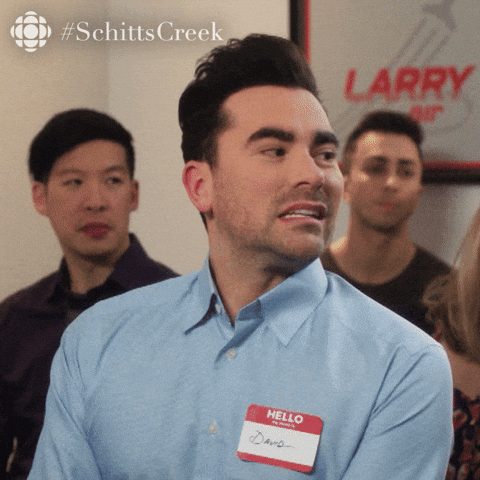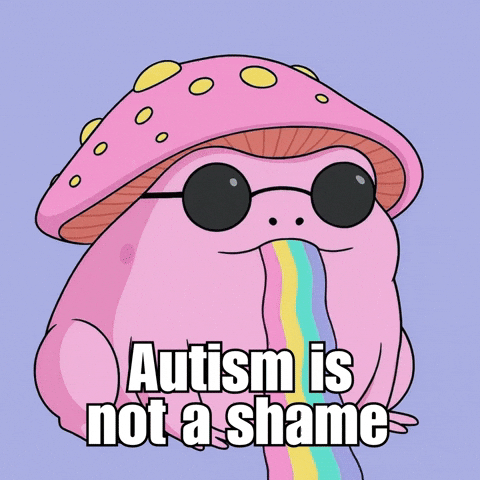Late Diagnosed Autism Symptoms: My Story at 45
#TalkNerdyToMe® Anonymous Submission:
I’m 45 years old, and I was diagnosed as autistic just one month ago.
If you grew up in the '80s and '90s like I did, you probably remember autism only being recognized in kids who were non-verbal, had intense meltdowns, extreme sensory sensitivities, or very visible physical differences. Basically, the most stereotypical “extreme” presentations of the spectrum.
So for people like me? We fell through the cracks.
I was just “the quiet little space case” doodling in the corner. A painfully awkward nerd girl with zero social skills. I loved animals, reading, drawing, science, and nature. I was sensitive, lonely, weird, and always felt like an outsider. If there were “late diagnosed autism symptoms” written on my forehead, nobody could see them—because back then, nobody was looking for them.
Giveaways I Missed (But My Doctors Didn’t)
Now that I’m actually diagnosed, my doctors—and other autistic people I’ve talked to—have pointed out some signs that probably should have been red flags:
I Was Always “Too Much” or “Not Enough”
I either excelled or completely bombed in school. There was no in-between.
I won science fairs but couldn’t do basic arithmetic.
I read at a college level as a kid, but my spelling was at kindergarten level.
My report cards always said the same thing: “She could do so well if she just applied herself.”
Spoiler: I was already applying myself. I was trying so hard. But things that seemed easy for everyone else were exhausting for me. I now know that was executive dysfunction and hyperfocus, but at the time? Adults just saw failure.
Diagnosed with “Learning Disabilities” (But Not the Right One)
I was put in special education, but no one could explain why I needed to be there. I was smart, curious, and high-achieving in certain areas. But instead of receiving support, I ended up in a classroom full of emotionally volatile kids with one very patient teacher.
Nobody ever connected the dots to autism.
Social Isolation and Bullying
I could never figure out social rules. I was constantly laughed at, excluded, or bullied—usually for things I didn’t understand, like my clothes, my hair, or just existing “weird.” People called me slurs. Kids, teachers, even family members said I was “off.” But no one could tell me why.
I was told I needed to try harder to fit in. What they didn’t see is that I was already trying with everything I had.
Emotional Sensitivity (aka Meltdowns in Disguise)
I had a “bad temper,” but looking back, I now see it as emotional dysregulation and sensory overload. I was extremely sensitive to teasing or abuse, and when people pushed me past my limit—which they often did—I’d explode into tears or rage.
Turns out, that’s not just being “too sensitive.” It’s actually a classic autism response to overstimulation.
Extreme Fatigue in Childhood
Starting in third grade, I was unusually tired all the time. After school, while other kids were riding bikes or playing, I’d be curled up on the couch or in bed. My doctors now believe I was dissociating and experiencing shutdowns from constant overwhelm.
I wasn’t being lazy—I was just trying to survive.
The Quieter Late Diagnosed Autism Symptoms
Autism doesn’t always look how you expect. Especially not in women and AFAB (assigned female at birth) individuals. Here are some subtler signs I now recognize in myself:
Studying TV to Learn Social Behavior
I used to watch hours of television—not just for entertainment, but to study how people behaved. I was desperate to learn how to interact, how to blend in, how to stop being a target. That wasn’t just a quirky habit. It was masking in training.
Sensory Sensitivities You’d Never Expect
I don’t mind clothing textures, but I hate touching paper.
I always wear long sleeves and pull them over my hands so I don’t have to touch things with bare skin.
I wiggle my toes constantly—a socially acceptable stimming behavior I didn’t even realize was stimming.
“Picky Eating,” But Not in the Typical Way
I didn’t like common kid foods—soda, pancakes, mac and cheese. People were furious about it. Meanwhile, I was happy eating sardines and vegetables. (Which obviously didn’t help my “weird” reputation.)
The Myth: “People With Autism Like Being Alone”
Nope. Not me.
I hated being alone. But I didn’t have a choice. I didn’t enjoy isolation—I was simply excluded from everything. I became clingy with the few adults who treated me kindly, like my mom. People say autistic people don’t need connection. I did. I still do.
What I Wish I’d Known Sooner
I didn’t “outgrow” being autistic. I just became very skilled at masking. I eventually got good at jokes, sarcasm, social nuance… so I assumed I couldn’t possibly be autistic.
Turns out, I was just coping. And that coping came at the cost of burnout, shame, and decades of feeling like I was broken.
Now that I finally have answers, I feel catharsis. I feel seen.
Final Thoughts: You're Not Too Old for Answers
If you recognize yourself in my story, you’re not alone. These are late diagnosed autism symptoms that often go unnoticed—especially in girls, women, and AFAB folks. We didn’t miss the signs. The world just wasn’t looking for them in us.
But now, we’re finding each other. And that’s everything.


